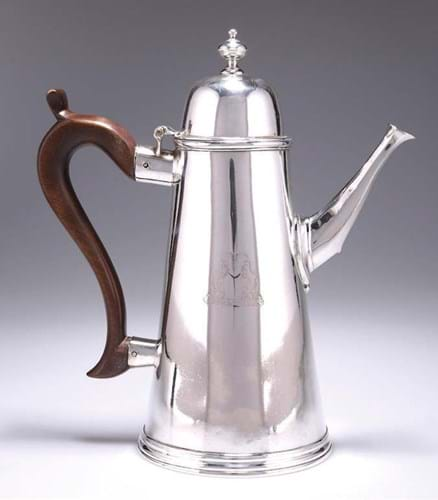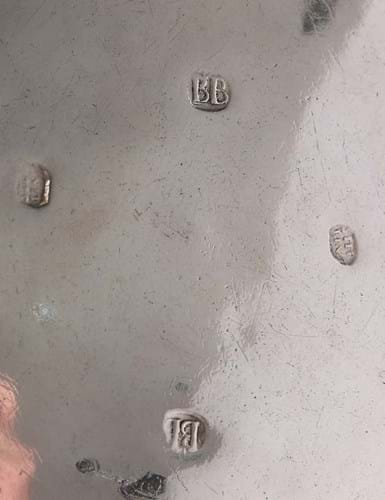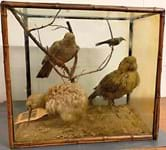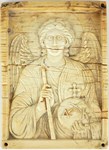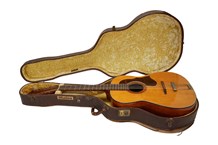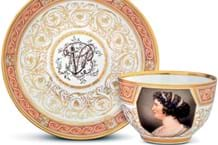As well as the mark Sterling, it is struck twice BB for Benjamin Brancker (d.1734) who is known to have been working in Liverpool from the early years of the 18th century.
The crest is for Thomas Willis, a Liverpool merchant, who in 1684 purchased the estate of Halsnead Park in Cronton. He died unmarried in 1727.
Another Brancker coffee pot of this ‘lighthouse’ form, with a similarly distinctive faceted spout, is in the Liverpool Museum.
Saleroom history
This piece has a recent saleroom history. When sold on behalf of the D’Anyers Willis Will Trust in Christie’s South Kensington on September 2004, it had taken £19,500 (£23,300 including premium). However, that price had plunged to a low-estimate £5000 (£6250 including premium) when it reappeared as part of the Sotheby’s sale SJ Phillips: A Bond Street Legacy in 2017.
Reoffered again at Chiswick Auctions as recently as March (one of two Brancker coffee pots in the sale – the other with a shell-cast spout), it failed to get away estimated at £8000-12,000.
This time in North Yorkshire it did sell, finding a buyer at the lower end of the £7000-9000 guide.
Rapid expansion
The population of Liverpool, a settlement of around 5000 people in 1700, grew quickly on the profits of the slave trade and was larger than Chester (a city with its own assay office) by 1725.
A petition sent to the Corporation of Chester in 1715, which attempted to get greater trading rights for the merchants of Liverpool, reflected this changing balance of power.
It references Brancker’s appeal to become a freeman of the Corporation, saying: “You know how his business lyes in Jewiling and Enamelling of Faces to the Life, but chiefly the Latter, is what he applys himself to, and for the Reason will meet with little or no Opposition, there being none in Chester of that Buisness, nor but one more in England that we Ever yet heard off.”


